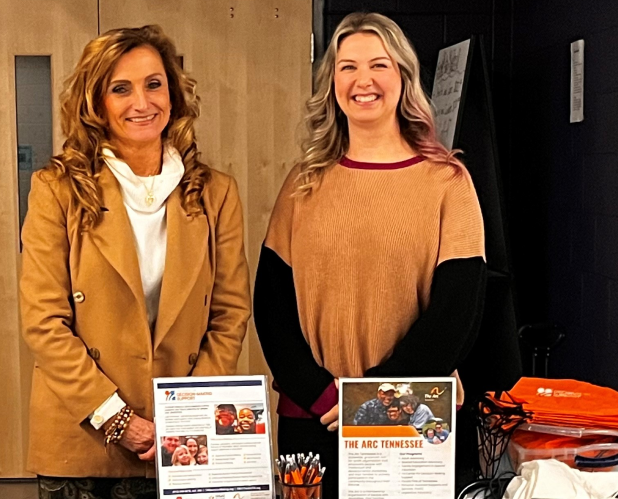For most people, decision-making is an effortless daily activity. For individuals living with intellectual and developmental disabilities (IDD), this can be a challenge. Yet, the ability to make decisions about everyday needs and future plans, such as where to live and how to manage finances, medications and healthcare needs, can have a tremendous impact on a person’s well-being and ability to live independently.
For more than 75 years, The Arc has been the leading advocacy organization for people with IDD and their families. A membership organization with 15 chapters across the state, The Arc Tennessee provides information, services, resources and support that empower children and adults with IDD to lead full and meaningful lives in their communities.
In 2020, The Arc Tennessee collaborated with Tennessee’s Council on Developmental Disabilities and Disability Rights Tennessee to create the Tennessee Center for Decision-Making Support (CDMS), a groundbreaking initiative that enables individuals with IDD to make choices about their lives with support from loved ones and others they know and trust. Recently, The Arc Tennessee expanded its program to include individuals facing mental illness, Alzheimer’s and other forms of dementia.
CDMS leverages LifeCourse Nexus’s Decision-Making Support Tool, a groundbreaking questionnaire designed to help people living with disabilities to understand where they need or want support and who can help and how, as well as to identify services that can enable them to live as independently as possible. As such, it offers a much-needed, less restrictive alternative to guardianship and other legal interventions.
“The CDMS is dedicated to protecting the rights of our most vulnerable community members to choose how they want to live,” said Dr. Robbie Faulkner, Executive Director of The Arc Tennessee. “Recently, we collaborated with Rhode Island Disability Rights and the Oregon Council on Developmental Disabilities because of their desire to replicate our program in their states. We’ve also been asked to present our model at national conferences and other events to demonstrate how organizations can help drive system change on behalf of individuals living with IDD and other disabilities.”
